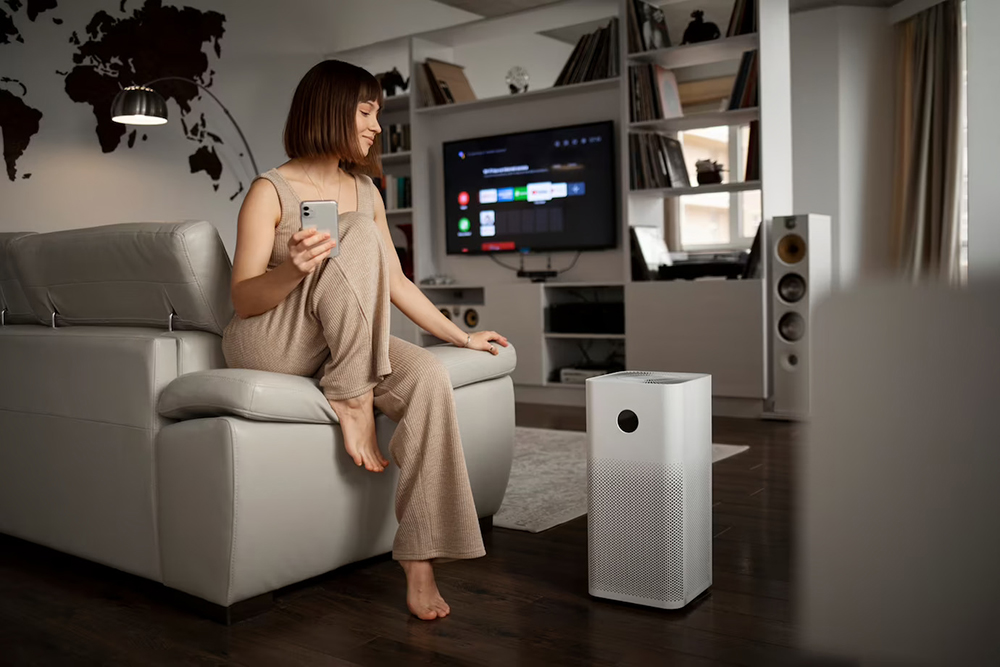Smart home technology has revolutionized the way we interact with our living spaces, bringing a new level of convenience, comfort, and efficiency into our daily lives. From controlling lights and appliances with a simple voice command to enhancing security and energy efficiency, smart home automation has transformed houses into interconnected and intelligent spaces. Let’s explore how smart home technology is revolutionizing our living spaces and the benefits it offers:
Home Automation and Control:
Smart home technology allows homeowners to automate and control various aspects of their homes remotely. With the help of smartphone apps or voice assistants like Amazon Alexa or Google Assistant, you can adjust thermostats, control lighting, operate electronic devices, and even lock or unlock doors from anywhere in the world.
Enhanced Security:
Smart home security systems offer advanced features that provide peace of mind to homeowners. From smart doorbell cameras that allow you to see and communicate with visitors remotely to motion-sensing security cameras that send real-time alerts to your phone, these technologies enhance the security of your home.
Energy Efficiency:
Smart home technology plays a crucial role in improving energy efficiency. With smart thermostats, you can set heating and cooling schedules based on your daily routines, saving energy when you’re away from home. Additionally, smart lighting systems automatically adjust brightness and turn off lights when not in use, reducing energy consumption.
Voice Control and Virtual Assistants:
Voice-controlled virtual assistants like Amazon Alexa, Google Assistant, and Apple’s Siri have become integral parts of smart homes. These virtual assistants can control various devices and answer questions, making daily tasks more convenient and efficient.
Entertainment and Media Control:
Smart home technology allows seamless integration of entertainment systems. You can control your TV, audio systems, and streaming services with voice commands or a single app, eliminating the need for multiple remote controls.
Personalized Home Automation:
Smart home systems can be customized to suit your lifestyle and preferences. You can create personalized automation routines, such as setting “Good Morning” or “Good Night” scenes that adjust lighting, and temperature, and even play your favorite music automatically.
Increased Accessibility:
Smart home technology has made living spaces more accessible for people with disabilities or mobility challenges. Voice-controlled devices and home automation features enable easier control of various functions, promoting independence and convenience.
Remote Monitoring and Notifications:
Smart home security systems offer remote monitoring and real-time notifications for events such as motion detection or doorbell rings. You can keep an eye on your home, even when you’re away, and receive instant alerts in case of any security issues.
Smart Appliances and Devices:
From smart refrigerators that track food inventory and expiration dates to smart washers and dryers that can be controlled from your phone, smart appliances make household chores more efficient and manageable.
Seamless Integration:
One of the key benefits of smart home technology is its ability to integrate with a wide range of devices and platforms. Many smart devices work together, creating a cohesive and interconnected ecosystem that simplifies daily routines.
Peace of Mind and Convenience:
With smart home technology handling routine tasks and providing enhanced security, homeowners experience greater peace of mind and convenience. Whether it’s turning off lights remotely or receiving notifications about potential security risks, smart home features make life easier and more relaxed.
Future-Proofing Your Home:
As technology continues to advance, smart home systems offer a way to future-proof your home. Upgrades and new features can be easily integrated into existing smart setups, ensuring that your living space remains on the cutting edge of innovation.
Savings on Utility Bills:
Smart home technology’s energy-efficient features often lead to cost savings on utility bills. By optimizing energy usage and reducing waste, you can lower your monthly expenses while being environmentally conscious.
Real Estate Value:
Homes equipped with smart home technology tend to have higher real estate value. Buyers are increasingly seeking properties with smart features, making it a valuable investment for homeowners.
User-Friendly Interfaces:
Smart home technology is designed with user-friendliness in mind. Most devices and apps have intuitive interfaces, making it easy for users of all ages to interact with and control their smart home systems.
Conclusion:
Smart home technology is transforming our living spaces, offering unprecedented levels of convenience, comfort, and efficiency. With automation, security, and energy-saving features, smart homes have become more than just houses – they are intelligent and interconnected living environments. The benefits of smart home technology extend beyond convenience and efficiency; they also provide peace of mind, cost savings, and even increased real estate value. As technology continues to evolve, smart home systems will only become more sophisticated and integral to the way we live. Embracing smart home automation allows us to fully experience the potential of modern living and make our living spaces truly intelligent, personalized, and transformative.

